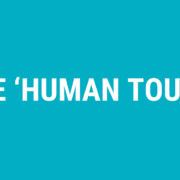Why Care About Employer Branding?
Building Your Corporate Identity
Employer branding is an essential strategy in today’s competitive job market, focused on managing and influencing your company’s reputation as an employer among potential candidates, current employees, and other stakeholders. It’s how a company markets itself to attract talent and retain its existing workforce by positioning itself as an employer of choice.
A strong employer brand not only helps in talent acquisition but can also reduce the cost per hire and foster a positive employer-employee relationship. When potential employees embark on their job search, your employer brand plays a pivotal role in how they perceive your company, often influencing their decision to apply for or accept a job offer.
Key Elements of a Strong Employer Brand
Several key elements must be considered to ensure effectiveness and appeal when developing a strong employer brand.
Firstly, having a Distinctive Employee Value Proposition (EVP) is crucial. This refers to the unique set of offerings and values an employer provides in return for the skills, experiences, and contributions that an employee brings to the organization. A well-defined EVP sets a company apart and makes it attractive to potential employees.
Another essential element is fostering a Positive Company Culture. This encompasses the environment, values, and behaviors that define life at the company. The culture should positively influence employee experiences, making the workplace not just a place to work but where employees feel valued and engaged.
Authentic Employee Experiences are also vital. Sharing positive, real stories and testimonials from current employees helps paint an accurate picture of working at the company. These authentic narratives are far more relatable and trustworthy to potential employees than any corporate spiel.
Consistent Messaging across various company platforms and materials is key. Whether in job descriptions, employer branding campaigns, or company communications, it’s important to present a clear and unified image of the company. This consistency helps establish a recognizable and reliable employer brand in the minds of potential employees.
Lastly, managing Employer Visibility and Reputation is a significant aspect. This involves how your company is perceived across various channels, including social media platforms, employer review sites, and throughout the hiring process. It’s about ensuring that every touchpoint with potential and current employees reinforces a positive view of the company.

Strategies to Enhance Your Company’s Employer Brand
To cultivate a positive employer brand, there are actionable strategies that can significantly lift a company’s appeal to talent. Here’s a list of methods you should consider:
- Articulate a clear EVP: Clearly define and communicate your employee value proposition and why candidates should work for you. Think about what your target employee prioritizes when creating one.
- Align branding and recruitment: Ensure your employer branding strategies are consistently applied across all recruitment materials and channels. Inconsistency might confuse potential employees, leading them to seek clearer messaging elsewhere.
- Employer branding campaigns: Investing in a robust employer branding campaign can increase your visibility to prospective employees exponentially.
- Measurement and improvement: Track metrics, such as employee retention rates, cost per hire, and employee referrals, to measure the success of your employer’s branding efforts and identify areas for improvement.
- Feedback loop: Regularly solicit and act upon feedback from current and potential candidates to refine your employer’s brand strategy. Constantly improving through small steps will help you get closer to where you need to be.
To identify strategies to consider, take some time to conduct an employer brand audit. A brand audit reviews many of the situations listed above, enabling stakeholders to identify areas of improvement.
Employer Branding Through Employee Advocacy
One of the most powerful strategies to enhance branding is employee testimonials. Employee advocacy is like word-of-mouth advertising, meaning potential employees are likely to trust others. Here are a few ways you can leverage that:
- Employee Testimonials: Sharing authentic stories and experiences from your employees on your career page and employer branding materials. Encourage honest reviews to be left on pages like Glassdoor or Indeed. Sometimes, negative feedback is just as valuable.
- Employee Referrals: Encourage your staff to refer qualified applicants from their networks. Typically, this helps you skip some of the uncertainty of bringing in new people. Just be careful not to bring too many of the same kinds of people; diversity creates a more dynamic workforce.
- Social Sharing: Employees share their work and company culture experiences through social media channels. The more your employees communicate, the more potential employees consider your place of work.
Don’t force the answers that you want to hear. Instead, encourage employees to share authentic experiences.
Leveraging Social Media for Employer Branding
Utilizing social media platforms is critical in enhancing a company’s employer brand. By posting engaging content enriched with images and videos, companies can effectively showcase their culture and the experiences of their employees. This approach brings the company’s ethos to life, making it more relatable and appealing to potential candidates. Employing strategic hashtags boosts the visibility of these posts, helping to reach a broader audience. Additionally, incorporating interactive elements like polls and Q&A sessions on these platforms can actively engage prospective employees, fostering a sense of connection and involvement.
Cross-promotion of content across different social media channels is another key tactic. It broadens the reach of the employer brand, ensuring visibility across diverse digital landscapes. Highlighting employees through spotlights and sharing behind-the-scenes glimpses into company life personalizes the brand. These narratives humanize the company and help establish a strong, relatable employer image.
Monitoring and analyzing engagement metrics is an essential part of this strategy. It enables companies to fine-tune their branding efforts and assess what content resonates most with their audience. This data-driven approach ensures that the social media strategy remains effective and relevant.
In essence, consistent and authentic communication through social media solidifies a company’s position as a desirable employer. This attracts qualified candidates and can streamline the recruitment process, making it more efficient and cost-effective. By leveraging these digital platforms thoughtfully, companies can significantly enhance their reputation and appeal in the competitive job market.

The Role of Company Culture in Employer Branding
Company culture is pivotal in shaping employer branding, serving as the foundation that reflects an organization’s core values and behaviors. This culture is deeply intertwined with an employer’s brand, directly influencing the perception of current employees and the expectations of potential candidates.
Key aspects of company culture that impact employer branding include:
- Core Values: They define the expectations within the workplace and shape the overall work environment.
- Behaviors: These foster trust and significantly influence how internal and external stakeholders perceive the brand.
- Leadership: Leaders set the standards and exemplify the company culture through actions and decisions.
A coherent and well-defined company culture permeates every aspect of an organization, from job descriptions to daily employee interactions. This culture helps attract candidates seeking a compatible work environment and promotes long-term growth by engendering employee loyalty. By aligning employer branding efforts with cultural values, companies create an authentic image that resonates with potential candidates.
Furthermore, a transparent and well-communicated company culture can reduce employee turnover and increase overall satisfaction by setting clear expectations and fostering a positive work environment.

Employer Branding in the Era of Remote Work
In the era of remote work, employer branding is adapting to new challenges and seizing fresh opportunities. As businesses move away from traditional office settings, the focus shifts from physical aspects of company culture, like office space and face-to-face interactions, to a more digital-centric approach. This change necessitates innovative employer branding strategies that emphasize digital engagement and the building of virtual communities.
Employers need to adapt their employee value proposition (EVP) and branding campaigns to be effective in the digital world. Utilizing social media platforms and other digital channels is now key to effectively communicating the employer brand. This online presence is about reaching potential employees and reinforcing the brand among current staff. Effective online communication is crucial; a strong and positive digital presence can attract candidates from a broader geographic area, significantly expanding the talent pool.

The Final Word on Employer Branding
By understanding the importance of a strong employer brand and implementing the strategies discussed, you can position your company as an employer of choice and differentiate yourself from the competition.
Remember, employer branding is an ongoing process that requires consistent effort and communication. If you have further tools for connecting your workplace with the right employees, sign up for Rainmakers.










